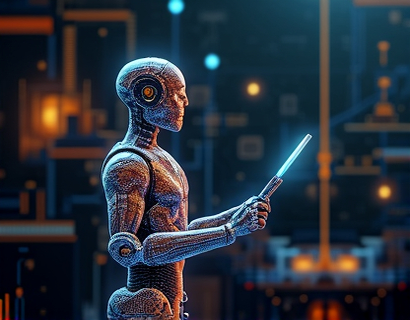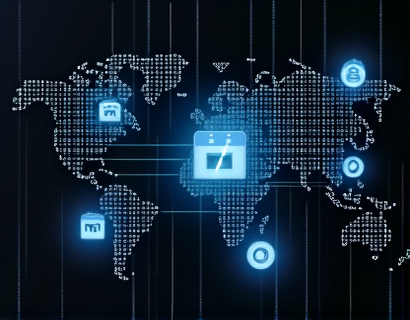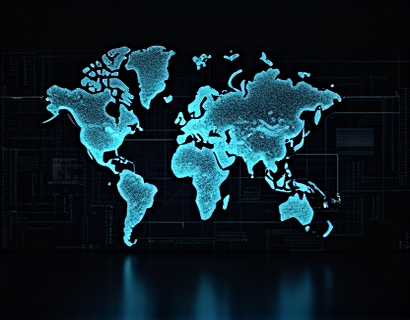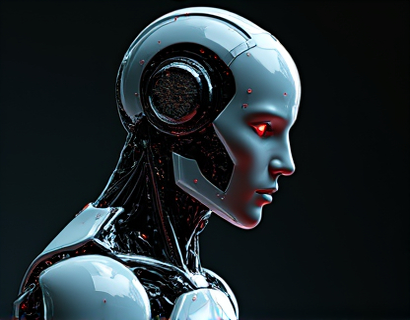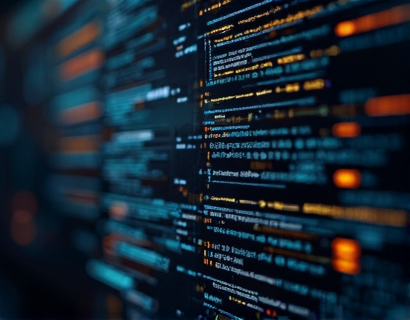Decentralized Productivity 2025: Harnessing AI and Crypto for Business Transformation
The landscape of business productivity is undergoing a profound transformation, driven by the convergence of artificial intelligence (AI) and cryptocurrency technologies. This shift towards decentralized solutions is not just a trend but a fundamental change in how businesses operate, connect, and innovate. In 2025, tech leaders and early adopters have the opportunity to leverage this synergy to revolutionize their operations, enhance productivity, and stay ahead of the curve.
The integration of AI and cryptocurrency offers a unique set of tools and platforms that can significantly enhance business processes. AI brings intelligence, automation, and predictive capabilities to the table, while cryptocurrency provides a secure, transparent, and decentralized means of transaction and data management. Together, they form a powerful ecosystem that can redefine productivity and connectivity for businesses of all sizes.
Understanding Decentralized Productivity
Decentralized productivity refers to the use of decentralized technologies to improve and streamline business operations. This approach moves away from traditional centralized systems, where control and data are held by a single entity, to a more distributed model. In a decentralized system, multiple participants can collaborate and transact without the need for intermediaries, reducing costs, increasing transparency, and enhancing security.
The core principles of decentralization include openness, community-driven development, and resistance to censorship. These principles are particularly appealing to businesses looking to break free from the constraints of traditional systems and embrace a more collaborative and innovative approach. By leveraging blockchain technology, decentralized platforms can ensure that data is immutable, transactions are secure, and processes are transparent.
AI in Decentralized Productivity
AI plays a crucial role in decentralized productivity by providing advanced analytics, automation, and intelligent decision-making capabilities. In a decentralized environment, AI can process vast amounts of data from multiple sources, identify patterns, and offer insights that would be impossible for humans to discern manually. This enhances the efficiency and effectiveness of business operations.
One of the key applications of AI in decentralized productivity is automation. Smart contracts, powered by AI, can automate complex business processes, ensuring that tasks are executed precisely and efficiently. For example, in supply chain management, AI-driven smart contracts can monitor inventory levels, predict demand, and automatically trigger purchases or shipments, reducing delays and errors.
Additionally, AI can enhance customer service in decentralized systems. Chatbots and virtual assistants, driven by natural language processing and machine learning, can provide 24/7 support, handle inquiries, and resolve issues in real-time. This not only improves customer satisfaction but also reduces the workload on human staff, allowing them to focus on more strategic tasks.
Cryptocurrency and Decentralized Finance (DeFi)
Cryptocurrency is a fundamental component of decentralized productivity, offering a new paradigm for financial transactions and asset management. Unlike traditional fiat currencies, cryptocurrencies operate on blockchain networks, ensuring transparency, security, and decentralization. This makes them ideal for business transactions, especially in a global context where cross-border payments can be slow and costly.
Decentralized Finance (DeFi) is an extension of cryptocurrency that applies blockchain technology to financial services. DeFi platforms offer a range of services, including lending, borrowing, trading, and yield farming, all without the need for traditional financial intermediaries. This democratizes access to financial tools and services, making them available to a broader audience.
In the context of decentralized productivity, DeFi can facilitate seamless and secure transactions for various business operations. For instance, businesses can use stablecoins to settle payments instantly and at a lower cost, or they can leverage decentralized lending platforms to access capital for growth initiatives. The transparency and immutability of blockchain ensure that all transactions are recorded and verifiable, reducing the risk of fraud and errors.
Enhancing Connectivity and Collaboration
Decentralized productivity platforms enhance connectivity and collaboration by providing tools that enable seamless communication and data sharing among team members and partners. In a decentralized environment, these tools are built on open protocols and standards, ensuring interoperability and ease of use.
One such tool is decentralized messaging and collaboration platforms. These platforms use blockchain to secure communications and ensure that data is not controlled by any single entity. Users can share files, collaborate on documents, and conduct meetings without worrying about data breaches or censorship. The use of encryption and decentralized storage further enhances the security and privacy of these communications.
Another important aspect is the use of decentralized identity management systems. These systems allow users to control their digital identities and decide who can access their data. This not only enhances privacy but also simplifies the onboarding process for new team members and partners, as identities can be verified and managed securely on the blockchain.
Case Studies and Real-World Applications
Several businesses have already begun to leverage the power of AI and cryptocurrency to transform their operations. One notable example is a logistics company that implemented an AI-driven decentralized platform for supply chain management. The platform uses blockchain to track goods in real-time, ensuring transparency and traceability. AI algorithms predict demand and optimize routes, reducing costs and improving delivery times. The result has been a significant increase in operational efficiency and customer satisfaction.
In the creative industry, a content creation agency has adopted a decentralized content marketplace powered by AI and cryptocurrency. The platform uses smart contracts to automate payment processes and ensure fair compensation for creators. AI tools help in content recommendation and audience analysis, enabling the agency to tailor its offerings to meet market demands. This has led to a surge in client acquisition and project success rates.
Another example is a financial services firm that has integrated DeFi solutions into its operations. By using stablecoins for international transactions and decentralized lending for capital expansion, the firm has reduced transaction costs and improved access to funds. The transparency of blockchain ensures compliance and reduces the risk of fraud, enhancing the firm's reputation and trustworthiness.
Challenges and Considerations
While the potential benefits of decentralized productivity are significant, there are also challenges and considerations that businesses must address. One of the primary challenges is the technical complexity of blockchain and AI technologies. Implementing these solutions requires a skilled workforce and a solid understanding of the underlying principles.
Another challenge is regulatory uncertainty. The regulatory landscape for cryptocurrency and blockchain is still evolving, and businesses must navigate varying laws and guidelines across different jurisdictions. Compliance is crucial to avoid legal issues and maintain trust with stakeholders.
Scalability is also a concern. While blockchain technology has made significant advancements, it still faces limitations in terms of transaction speed and cost. Businesses need to carefully evaluate the scalability of decentralized solutions to ensure they meet their operational needs.
Future Trends and Opportunities
The future of decentralized productivity is promising, with several trends and opportunities on the horizon. One key trend is the integration of AI and blockchain with other emerging technologies, such as the Internet of Things (IoT) and 5G networks. This convergence will enable more intelligent, connected, and automated systems, further enhancing productivity and efficiency.
Another opportunity lies in the development of more user-friendly decentralized platforms. As the technology matures, we can expect to see more intuitive interfaces and tools that make it easier for businesses of all sizes to adopt and benefit from decentralized solutions.
Additionally, the rise of decentralized autonomous organizations (DAOs) presents a new model for business governance and decision-making. DAOs use blockchain to create self-governing entities where members have a say in the direction and operations of the organization. This democratization of governance can lead to more innovative and responsive business models.
Finally, the growing awareness and acceptance of cryptocurrency and blockchain among mainstream businesses and consumers will continue to drive adoption. As more companies recognize the value of decentralized solutions, the ecosystem will expand, offering a wider range of tools and services to support business transformation.
In conclusion, the integration of AI and cryptocurrency in decentralized productivity represents a significant shift in how businesses operate. By leveraging these technologies, companies can enhance efficiency, security, and connectivity, positioning themselves for success in the digital age. While challenges exist, the potential benefits and opportunities make this an exciting and transformative period for tech leaders and early adopters.







